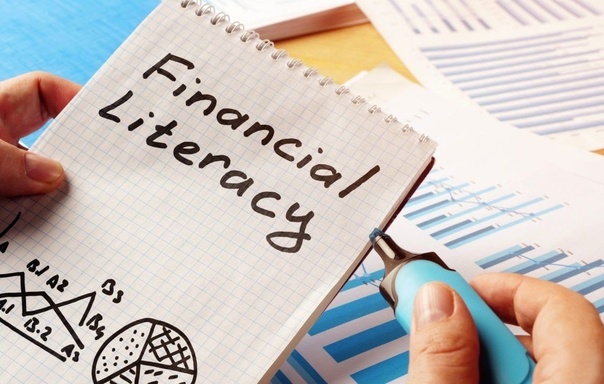
Outline

Introduction
1: Understanding the Importance of Financial Literacy: How to Improve Your Money Skills
- What is Financial Literacy?
- The Connection Between Financial Literacy and Financial Success
- Why Financial Literacy Matters in Today’s World
2: The Basics of Financial Literacy
- Key Concepts in Financial Literacy
- How Financial Literacy Impacts Everyday Decisions
- The Role of Financial Literacy in Personal and Professional Growth
3: Why Financial Literacy is Crucial in the Modern Economy
- The Rise of Personal Debt and Financial Instability
- The Shift Towards Individual Financial Responsibility
- The Increasing Importance of Financial Literacy in Managing Inflation and Economic Change
4: Financial Literacy and Its Role in Personal Finance
- Building a Budget: A Cornerstone of Financial Literacy
- Managing Debt and Credit Wisely
- Understanding Investments and Their Impact on Long-Term Financial Goals
- The Importance of Saving and Retirement Planning
5: How Financial Literacy Impacts Business Success
- How Business Owners Can Benefit from Financial Literacy
- The Connection Between Personal and Business Financial Knowledge
- How Financial Literacy Can Lead to Smarter Investment Choices and Business Growth
6: Key Areas of Financial Literacy Everyone Should Understand
- Budgeting Basics: The First Step in Managing Money
- Saving and Investing: Growing Your Wealth Over Time
- Credit, Loans, and Debt Management: Maintaining Financial Health
- Taxes: The Importance of Understanding Taxation and Deductions
7: The Psychological Aspect of Financial Literacy
- The Mindset Behind Money Management
- Overcoming Financial Anxiety with Financial Knowledge
- How Financial Literacy Can Boost Confidence in Financial Decision Making
8: Ways to Improve Your Financial Literacy
- Online Courses and Resources for Learning About Finance
- Books, Podcasts, and Blogs That Focus on Financial Literacy
- Engaging with a Financial Advisor or Expert to Gain Practical Insights
9: Practical Tips for Enhancing Your Financial Literacy
- Setting Short-Term and Long-Term Financial Goals
- Tracking and Analyzing Spending Patterns
- Reviewing Financial Statements Regularly to Stay Informed
- Learning to Make Informed Investment Decisions
10: Overcoming Common Barriers to Financial Literacy
- Tackling Financial Illiteracy in Schools and Communities
- The Role of Government and Nonprofits in Promoting Financial Education
- Breaking the Stigma Around Discussing Money and Finances
11: The Future of Financial Literacy in a Digital World
- The Role of Technology in Financial Education
- How Digital Tools Are Revolutionizing Money Management
- The Increasing Need for Financial Literacy in an Evolving Economic Landscape
12: Conclusion
- Recap of Key Takeaways
- Why Financial Literacy is a Lifelong Skill You Need to Keep Improving
- Final Thoughts on Empowering Yourself with Financial Knowledge
13: FAQs
- What are the best ways to start improving my financial literacy?
- How can financial literacy help me achieve my financial goals?
- What are some free resources to learn about financial literacy?
- How does financial literacy affect my ability to manage debt?
- Can financial literacy help me in my business or career?
Understanding the Importance of Financial Literacy: How to Improve Your Money Skills
Introduction
In an ever-changing economic landscape, understanding how money works has become more crucial than ever. Financial literacy is no longer just a luxury or a nice-to-have skill—it’s a necessity for navigating life in today’s world. Whether you’re managing your household finances, planning for retirement, running a business, or simply trying to make the most of your income, financial literacy is the foundation for making informed and effective decisions.
So, what exactly is financial literacy, and why should it matter to you? In essence, financial literacy refers to the knowledge and understanding of key financial concepts, such as budgeting, investing, debt management, and saving, that help individuals make informed financial decisions. Without it, people are more likely to fall victim to poor financial habits, spiraling debt, and missed opportunities for growth.
In this guide, we’ll explore why financial literacy is so important and how you can improve your money skills to set yourself up for financial success, whether you’re managing your personal finances or running a business.
The Basics of Financial Literacy
Financial literacy isn’t just about knowing how to balance a checkbook or understanding basic financial terminology—it’s about knowing how to make smart, informed decisions with your money. Here are the key concepts you need to understand to start improving your financial literacy:
Key Concepts in Financial Literacy
- Budgeting: Creating and maintaining a budget is the first step in financial literacy. Budgeting allows you to track your income, manage your expenses, and ensure you are saving for the future.
- Saving and Investments: Knowing how to save and invest money wisely is crucial to building wealth over time. This includes understanding different types of savings accounts, stocks, bonds, and retirement accounts.
- Debt Management: Understanding how to manage debt is a key component of financial literacy. This includes knowing how to handle credit, loans, and mortgages without getting into unmanageable financial situations.
- Credit: Understanding how credit works and how to maintain good credit is critical for your financial success. This includes knowing how to manage credit cards, loans, and credit scores.
How Financial Literacy Impacts Everyday Decisions
Your financial decisions can impact every area of your life—from what kind of house you can afford to how much you can save for retirement. Financial literacy provides you with the knowledge to make these decisions wisely, which will improve your overall quality of life and reduce financial stress.
READ MORE: The importance of Financial Literacy and how to improve it.
The Role of Financial Literacy in Personal and Professional Growth
Being financially literate is not only important for personal financial management but also for professional development. Financially literate individuals are better equipped to negotiate salaries, manage personal investments, and build wealth, all of which lead to a more secure and prosperous life.
Why Financial Literacy is Crucial in the Modern Economy
The world has changed drastically in recent decades. The rise of consumerism, credit cards, and easy loans has led to an era where financial decision-making is more complicated than ever. Understanding financial literacy is crucial, especially when you consider how important it is to avoid financial pitfalls.
The Rise of Personal Debt and Financial Instability
Personal debt is one of the major challenges people face today. From student loans to credit card debt, many individuals struggle to manage their financial obligations. Financial literacy helps individuals understand how to borrow responsibly, manage debt, and avoid falling into financial traps.
The Shift Towards Individual Financial Responsibility
In the past, people often relied on external sources, such as employers or government programs, for financial security. Today, individuals must take responsibility for their financial futures, from saving for retirement to understanding the implications of their financial decisions.
The Increasing Importance of Financial Literacy in Managing Inflation and Economic Change
In today’s economic climate, inflation and rising living costs can significantly impact personal finances. Understanding how to navigate these changes and make sound financial decisions is vital to maintaining financial stability.
Financial Literacy and Its Role in Personal Finance
For individuals, financial literacy isn’t just about learning the basic terms—it’s about having a clear, actionable strategy for managing money, debt, savings, and investments.
Building a Budget: A Cornerstone of Financial Literacy
Budgeting is one of the simplest yet most important ways to take control of your finances. It helps you manage your income and expenses, ensuring that you can save for both short-term needs and long-term goals.
- Personal Budgeting: Start by tracking your income and categorizing your expenses. From there, you can allocate specific amounts to your savings, debt repayment, and discretionary spending.
Managing Debt and Credit Wisely
Understanding how to manage debt is a key component of financial literacy. Whether it’s credit card debt, student loans, or a mortgage, it’s crucial to understand interest rates, repayment terms, and how to manage monthly payments effectively.
Understanding Investments and Their Impact on Long-Term Financial Goals
Investing allows your money to grow over time, and understanding the basics of stocks, bonds, mutual funds, and real estate will help you build wealth. Financial literacy gives you the tools to make informed decisions about where to invest your money to achieve long-term financial success.
The Importance of Saving and Retirement Planning
Saving for retirement is one of the most critical aspects of financial planning. With the increasing uncertainty of government-backed retirement benefits, individuals need to take charge of their future financial stability by contributing to retirement accounts like 401(k)s, IRAs, and other investment vehicles.
How Financial Literacy Impacts Business Success
As an entrepreneur, financial literacy becomes even more crucial. Being financially literate allows you to navigate the complexities of business finances, from managing operating costs to making key investment decisions that contribute to long-term growth.
How Business Owners Can Benefit from Financial Literacy
Financial literacy enables business owners to track cash flow, make sound investment decisions, and plan for taxes. It also helps you understand how to price products, manage operating expenses, and scale your business for future success.
The Connection Between Personal and Business Financial Knowledge
A good understanding of both personal and business finance can lead to better decision-making and reduce the likelihood of financial stress. Entrepreneurs who manage their personal finances well are often better equipped to manage their business finances.
How Financial Literacy Can Lead to Smarter Investment Choices and Business Growth
By understanding the financial implications of investments, business owners can make more informed decisions on everything from marketing budgets to expansion plans, resulting in sustainable business growth.
The Psychological Aspect of Financial Literacy
Understanding financial literacy isn’t just about math or numbers—it’s also about your mindset. Financial literacy helps people feel confident in their money decisions, which leads to better mental and emotional health.
The Mindset Behind Money Management
Financial literacy helps develop a growth mindset, where you see money as a tool to create opportunities. This mindset shift can help you make better decisions and build a strong financial future.
Overcoming Financial Anxiety with Financial Knowledge
Many people feel overwhelmed by finances, but financial literacy can reduce anxiety. By gaining knowledge and understanding how to manage money, you can take control and feel more confident in your financial future.
How Financial Literacy Can Boost Confidence in Financial Decision Making
When you are financially literate, you’ll be able to make confident decisions that align with your long-term goals, whether that’s managing business expenses, planning for retirement, or investing for growth.
Ways to Improve Your Financial Literacy
Improving your financial literacy is a continuous process, and there are several ways to begin.
Online Courses and Resources for Learning About Finance
There are countless free and paid resources available online, including courses from platforms like Coursera, Udemy, and Khan Academy, that teach everything from basic budgeting to complex investing strategies.
Books, Podcasts, and Blogs That Focus on Financial Literacy
Books like Rich Dad Poor Dad by Robert Kiyosaki and The Intelligent Investor by Benjamin Graham offer valuable insights into financial management. Podcasts and blogs are also great resources to learn on the go.
Engaging with a Financial Advisor or Expert to Gain Practical Insights
For personalized advice, consider consulting a financial advisor. They can provide tailored recommendations and guide you through the complexities of financial planning.
Practical Tips for Enhancing Your Financial Literacy
Here are actionable steps you can take today to improve your financial literacy:
Setting Short-Term and Long-Term Financial Goals
Set clear, achievable financial goals, such as saving for an emergency fund, paying off debt, or investing for retirement. Breaking down larger goals into smaller, manageable tasks makes them more achievable.
Tracking and Analyzing Spending Patterns
Use budgeting tools like Mint or YNAB to track your spending habits. Regularly reviewing your spending allows you to identify areas where you can save and adjust your financial strategy.
Reviewing Financial Statements Regularly to Stay Informed
Review your bank statements, credit reports, and investment statements regularly. Staying informed about your financial situation allows you to make timely adjustments when necessary.
Learning to Make Informed Investment Decisions
Financial literacy teaches you how to evaluate investment opportunities, assess risk, and understand market dynamics, empowering you to make informed investment choices that align with your financial goals.
Overcoming Common Barriers to Financial Literacy
One of the main barriers to improving financial literacy is the lack of access to education or resources. Financial illiteracy is widespread, but there are ways to break down these barriers.
Tackling Financial Illiteracy in Schools and Communities
Financial education should be part of the curriculum. Schools and communities can work together to provide essential financial literacy programs to students and adults.
The Role of Government and Nonprofits in Promoting Financial Education
Governments and nonprofit organizations can offer programs that provide free financial education resources, tools, and workshops for the public.
Breaking the Stigma Around Discussing Money and Finances
Many people avoid talking about money due to fear of judgment or embarrassment. Breaking this stigma and encouraging open discussions about money can improve financial literacy for everyone.
The Future of Financial Literacy in a Digital World
As technology continues to evolve, financial literacy is becoming more important in a digital economy.
The Role of Technology in Financial Education
Apps, online tools, and software make learning about finance easier than ever. Platforms like Personal Capital, Robinhood, and Acorns are helping people take control of their finances and investments with just a few clicks.
How Digital Tools Are Revolutionizing Money Management
Digital tools help you track your spending, save automatically, and invest with ease. These tools make it easier to understand where your money is going and how to plan for the future.
The Increasing Need for Financial Literacy in an Evolving Economic Landscape
With changing markets, digital currencies, and new investment strategies, financial literacy will continue to evolve. The more informed you are, the better prepared you’ll be to navigate future financial challenges.
READ MORE: Building Wealth through Real Estate: How to Get Started with Property Investment
Conclusion
Financial literacy is not just a skill—it’s a way of life. Whether you’re looking to improve your personal finances or run a successful business, understanding the basics of money management, investing, budgeting, and saving is crucial. Financial literacy empowers you to make informed decisions that set you on the path to long-term success, giving you the confidence to take control of your financial future.
FAQs
- What are the best ways to start improving my financial literacy?
Start by reading books, taking online courses, and using budgeting tools. Consider consulting a financial advisor for personalized guidance. - How can financial literacy help me achieve my financial goals?
Financial literacy allows you to make informed decisions, avoid common financial pitfalls, and develop strategies for saving, investing, and debt management that align with your goals. - What are some free resources to learn about financial literacy?
Websites like Khan Academy, Investopedia, and financial blogs offer free educational resources. Podcasts and YouTube channels also provide valuable insights into financial management. - How does financial literacy affect my ability to manage debt?
Financial literacy helps you understand the risks of debt, how to manage it responsibly, and how to pay it off faster. This knowledge helps you avoid falling into financial traps. - Can financial literacy help me in my business or career?
Absolutely! Financial literacy helps business owners manage expenses, make profitable decisions, and plan for long-term growth, while professionals benefit from understanding salary negotiations, taxes, and investments.








